Microservices development is an approach where applications are built as small, independent services communicating via APIs. Each service focuses on a business capability, making systems easier to scale, update, and maintain.
- Case Studies
- Services
Incubating a culture of innovation & creativity
- Artificial IntelligenceDeploy AI systems to solve defined business problems
- Agentic AIAutonomous agents that plan, decide, and execute tasks
- GEN AIScale content and decision processes
- AI AutomationStreamline workflows with intelligent automation
- AI Consulting ServicesStrategic guidance for AI adoption and transformation
- AI Infrastructure ManagementRun secure, scalable environments for AI workloads
- Conversational AIDeliver context-aware responses across channels
- Enterprise AIIntegrate AI across core business platforms
- ML Application DevelopmentBuild custom ML systems for data-driven decision-making
- Natural Language ProcessingAdvanced NLP solutions for enterprises
- Retrieval Augmented GenerationGround AI responses in enterprise knowledge
- Custom LLM DevelopmentBuild domain-trained models for specialized tasks
- ChatBot DevelopmentAutomate complex customer interactions end-to-end
- Data AnalyticsBuild advanced analytics across systems
- Business IntelligenceUnified dashboards for performance monitoring
- AWS ConsultingMaximize AWS resource utilization
- Cloud MigrationTransitioning infrastructure to cloud
- Azure ConsultingAchieving compliance with Azure frameworks
- Cloud ConsultingConsulting to boost cloud efficiency
- DevOps ConsultingHolistic approach to development practices
- Microservices DevelopmentBuilding scalable apps for large organizations
- MLOpsStreamlined model development processes
- Serverless Application DevelopmentEliminate server management hassles
- Cloud App DevelopmentFlexible resources for dynamic demands.
- CybersecurityComprehensive cybersecurity services to defend against threats and maintain trust.
- Custom Enterprise Platforms DevelopmentBuild AI-enabled custom enterprise solutions
- Industrial IoT DevelopmentTech-driven industrial innovation
- AIoT App DevelopmentTech-driven industrial innovation
- Smart TV App DevelopmentDeveloping interactive apps for smart TVs
- Wearable App DevelopmentCreating intuitive apps for wearable devices
- Cloud IoT DevelopmentBuilding scalable IoT solutions on cloud platforms
- OTT DevelopmentDelivering premium content over the internet
- Native App DevelopmentDelivering seamless user experiences
- Cross Platform App DevelopmentDeveloping apps for multiple platforms
- React Native App DevelopmentCreating interactive apps with React
- Flutter App DevelopmentCrafting fast, beautiful apps
- iOS App DevelopmentLeveraging iOS features for innovation
- Android App DevelopmentLeveraging Android flexibility for innovation
- React Js DevelopmentDeveloping modern web apps with React.js
- Next Js DevelopmentCreating robust web apps with Next.js
- Node Js DevelopmentCreating fast, scalable server-side applications
- .Net MAUI DevelopmentCross-platform apps with a single codebase
- Python DevelopmentBuilding versatile applications with Python
- Progressive App DevelopmentTransforming websites into engaging PWAs
- Digital TransformationBuilding scalable IoT solutions on cloud platforms
- Enterprise App DevelopmentBuilding scalable apps for large organizations
- Low Code Application DevelopmentAccelerating development with minimal coding
- SaaS Application DevelopmentEnhancing collaboration via cloud platforms
- Legacy ModernizationMigrating legacy apps for scalability
- Super App DevelopmentMulti-services in one platform
- Streaming App DevelopmentLive broadcasting capabilities for events
- API DevelopmentProviding access to third-party services
- B2B App DevelopmentConnecting businesses with seamless integration
- CMS DevelopmentMulti-user access for collaborative editing
- Power Apps DevelopmentIntegrate easily with Microsoft ecosystem
- Guidewire App DevelopmentTailoring insurance apps with Guidewire
- Blockchain DevelopmentAccelerate digital transformation with secure, scalable blockchain solutions
- Microsoft Fabric ConsultingData strategy, implementation, and ongoing support to maximize your data’s value.
Engagement ModelsFlexible Partnerships. Predictable Outcomes. - Industries
Uncover the transformative potential of digital and mobile solutions for your industry
- Insights
- About
- Contact Us
Microservices Development Company
Break down complex software into smaller, manageable pieces that work together seamlessly.
Build faster, scale easier, and maintain better control over your applications.

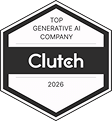




























Explore our advanced Microservices development solutions
Discover the next level of scalability, flexibility, and resilience for your applications through our specialized microservices development solutions.
Microservices consulting
We help you build modern microservices-based applications from start to finish. Our solutions are built to grow with your business and run efficiently, so you can reach your long-term goals with confidence.
Microservices migration
Microservices make it easy to upgrade your old software systems by breaking them into smaller pieces that work better together and are easier to manage.
Microservices integration
We help connect different parts of your software so they work together smoothly. This makes your old systems and new apps faster and easier to update when your business needs change.
Microservices testing
We test your microservices to make sure all parts work together properly. Our testing checks every service and connection to ensure your entire system runs smoothly without problems.
Microservices support & maintenance
We actively monitor and fix your microservices applications before problems occur. Our ongoing support keeps your software running smoothly and prevents issues that could slow down your business operations.
Microservices deployment
Our microservices deployment process follows a comprehensive approach that includes deployment automation, containerization, continuous integration and delivery, and efficient scaling in order to ensure effective and managed deployment.
What are the Benefits of Microservices Development Services?
How Do Microservices Development Services Help Businesses Grow?
Our custom microservices development services deliver scalable, resilient solutions for enterprise application modernization. Containerized modular architecture helps you accelerate deployment cycles with independent service scaling capabilities.

Enhanced System Reliability
- We implement distributed architecture with independent service deployment, automated health monitoring, logging frameworks.
- Circuit breaker patterns with service mesh integration prevent cascading failures across systems.
Accelerated Development
- Independent teams deploy microservices continuously without impacting other system components or services.
- Polyglot technology stacks allow optimal tool selection for specific business requirements.
Flexible Scalability
- Scale individual services based on demand patterns that also optimize infrastructure costs.
- Container orchestration platforms dynamically allocate resources matching real-time traffic & workload demands.
Enterprise-Grade Performance
- Distributed systems architecture built on Kubernetes, Docker ensures near zero-downtime deployments with blue-green strategies.
- Load balancing with service replication guarantees high availability during peak traffic surges.
Turn Your Idea Into an AI Smart Mobile Product.
Connect with Our Experts Today to Architect a Next-Generation App Strategy.
Trusted By
Empowering Global Brands and Startups to Drive Innovation and Success with our Expertise and Commitment to Excellence
Case Studies
Exploring Success Stories
Discover how businesses have transformed their operations with TechAhead’s Microservices development solutions. From enhancing scalability and agility to accelerating time-to-market for new innovations, our clients have achieved remarkable success stories. Explore these success stories and envision how Microservices can revolutionize your business.
- Cloud Engineering
- Mobile App
- UX/UI Design
Boxlty
REVOLUTIONIZING REAL ESTATE WITH IoT-POWERED ACCESS
CHALLENGE
Traditional property viewings need physical presence for every showing. Real estate professionals needed automated visitor verification, remote property access management, and seamless coordination across multiple listings to eliminate scheduling conflicts and productivity loss from manual property tours.
SOLUTION
We developed an IoT-powered platform featuring Bluetooth-enabled smart locks integrated via APIs, supported by a microservices architecture for scalability. It offers real-time visitor identification and verification through API-driven authentication. A redesigned mobile app allows scheduling, live visitor tracking, and seamless property viewings, removing the need for physical presence while significantly enhancing user convenience.
IMPACT
- 100% Bluetooth-Enabled Property Access
- 75% Reduction in Viewing Coordination Time
- 10X More Properties Viewed Per Day
- 90% Faster Property Tour Scheduling
- AI
- ClimateTech
- IoT
- Mobile App
PÜL
SMART HYDRATION TRACKING WITH IoT-ENABLED BOTTLE CAP
CHALLENGE
Users struggled to maintain consistent hydration habits due to a lack of motivation and real-time tracking. Manual logging proved ineffective, while generic reminders failed to account for individual consumption patterns, lifestyle factors, and personalized health goals.
SOLUTION
We developed an IoT-powered hydration system that integrates a smart bottle cap with a mobile application built on microservices architecture. The platform automatically tracks consumption, delivers personalized hourly reminders, and sets intelligent daily goals. It also features FlowSense Feedback, a gamified rewards system offering real-time motivation through points and visual analytics dashboards for users daily.
IMPACT
- 70% Users Meeting Daily Hydration Goals
- 15K+ FlowSense Points Earned Daily
- 88% Users Report Better Health Outcomes
- 3X Increase in Daily Water Intake
- AI
- ClimateTech
- IoT
- Mobile App
IMI Heatmiser
Transforming Heating Control with IoT & Minimal Design
CHALLENGE
The existing mobile application suffered from complicated navigation, information overload, poor user experience, decreased engagement, confusing interface layers, and declining user adoption of their heating control system.
SOLUTION
Built native mobile apps using Swift (iOS) and Java (Android), supported by backend APIs designed with microservices principles in Python. Deployed scalable infrastructure on AWS, using RabbitMQ for real-time messaging and Redis for efficient caching. Integrated seamlessly with leading smart home ecosystems and assistants, including Google Home, Apple HomeKit, Alexa, IFTTT.
IMPACT
- 32 Heating Zones Controlled per Home
- 15x Increase in User Engagement After Redesign
- 50% Reduction in Energy Consumption
- 4.8★ Average App Store Rating
Microservice Infrastructure Solutions
Key Microservice Platform Components
Core technology stack powering distributed systems with automated scaling, resilient communication, secure access control, and real-time data exchange for high-performance microservices applications.
Containerization Platforms
Container technologies package microservices with dependencies into lightweight, portable units that run consistently across any environment. They allow rapid deployment and efficient resource utilization.
Container Orchestration Tools
Orchestration platforms automate deployment, scaling, networking, and management of containerized services across clusters for high availability, load balancing, and self-healing capabilities.
API Gateway Solutions
Gateway technologies provide centralized entry points managing authentication, routing, rate limiting, and protocol translation, simplifying client access while securing and monitoring communication across microservices.
Message Brokers and Event Streaming
Messaging platforms enable asynchronous communication between services through publish-subscribe patterns and event streams. They support reliable data exchange, system decoupling, real-time processing capabilities.
Service Mesh Infrastructure
Mesh technologies handle service-to-service communication, providing traffic management, security, observability, resilience features without requiring changes to application code.
Our Roadmap
Our Proven Microservices Development Roadmap
We help you transform monolithic systems into scalable architectures through strategic microservices implementation.
Architecture
-
What We Do:Define service boundaries, communication patterns, set API contracts, plan infrastructure needs.
-
What You Get:Architecture blueprint, service decomposition strategy, aligned business capabilities and delivery timeline.
Domain Modeling & Service Design
-
What We Do:Identify bounded contexts, domain relationships, service interfaces, data ownership and inter-service dependencies.
-
What You Get:Well-defined service boundaries, deployment units, reduced coupling complexity, data ownership models and scalable domain architecture.
API Implementation
-
What We Do:Build independent services, implement RESTful APIs, event-driven communication, create service mesh infrastructure.
-
What You Get:Production-grade microservices, API gateways, messaging systems, service communication and flexible integration capabilities.
Data Management
-
What We Do:Design database-per-service patterns, set data synchronization, eventual consistency, configure caching strategies.
-
What You Get:Independent data stores, query performance, data integrity, caching mechanisms and transaction handling.
Testing & Validation
-
What We Do:Execute contract testing, integration validation, conduct chaos engineering, service resilience, performance benchmarks.
-
What You Get:Reliable service interactions, API contracts, fault tolerance, response times and test coverage.
Deployment
-
What We Do:Deploy containerized services, orchestration platforms, set monitoring dashboards, provide ongoing optimization.
-
What You Get:Live microservices ecosystem, real-time health monitoring, minimal downtime operations, performance improvement.
GAIN A COMPETITIVE EDGE
Why Partner with TechAhead for Microservices Development Services?
Explore TechAhead innovative approaches to scalability, agility, and efficiency, tailored to meet your digital transformation needs:

Who Architects Your Microservices Solutions at TechAhead?
Our dedicated microservices architects, DevOps engineers, cloud-native specialists possess deep domain expertise to design containerized systems tailored to your specific business challenges.
What Makes Our Development Approach Distinctive?
Our domain-driven design methodology breaks monoliths into independent services through incremental migration strategies, which deliver loosely coupled systems with clear bounded contexts aligned to your business capabilities.
How Do We Ensure Production-Ready Quality?
We use API testing, implement service mesh security, set CI/CD pipelines with automated deployment gates, and conduct thorough penetration testing to protect your distributed architecture.
What Powers Our Microservices Infrastructure?
Our experts leverage container orchestration platforms, API gateways, event-driven messaging systems, observability tools for creating resilient distributed systems with complete visibility.
How Does TechAhead Ensure Data Security?
Ensuring Trust Through Rigorous Compliance
At TechAhead, we build mobile apps that are not only feature-rich and scalable —
they’re built with compliance, security, and regulatory integrity baked in.
GDPR
CCPA
DPDP Act, 2023
PIPEDA
PCI DSS
Tokenization
3D Secure
PSD2 / SCA
ISO/IEC 27001
OWASP Mobile Top 10
Secure Coding
Continuous Auditing
Apple App Store Review
Google Play Developer Policy
Mobile Accessibility (WCAG)
HIPAA
FINRA / SEC
COPPA
FCC / Telecomm
Technologies We Leverage
Our Advanced Microservices Development Services Technology Stack
We use robust and modern tools to build microservices that work well and can grow with your business. Our technology helps us create reliable apps that keep users interested and support your business goals.




























































What are the Latest Microservices Trends?
The Future of Microservices: Enterprise Architecture Trends & Market Intelligence
The latest forecasts, data, and strategic insights you need to outpace the competition by 2030.


Everyday AI for Exceptional User Experiences

Transform Your Enterprise Systems with Scalable Microservices Architecture
We embed microservices patterns, containerization, and cloud-native architectures directly into your enterprise systems. From service decomposition to API orchestration, our team develops scalable distributed applications for accelerated digital transformation initiatives.

- Microservices Architecture Consulting
- Legacy System Modernization
- Cloud-Native Application Development
- API Gateway Implementation
- Event-Driven Integration Solutions
YOUR INNOVATION PARTNERS FROM STRATEGY TO PRODUCTION AND BEYOND
We partner with startups, scaleups, and enterprises to design and build AI-native platforms, systems, and applications that operate reliably in the real world.
From taking AI out of pilots and into production, to modernizing core systems that teams depend on every day, our work is measured by long-term outcomes—not just launches. These are the voices of teams who trusted us to build systems that scale, evolve, and deliver real impact.




































Which Industries Does TechAhead Serve?
What Industries Drive Our Microservice Innovation?
We work with businesses across a wide range of industries, building custom digital solutions that solve real challenges. From healthcare to retail, real estate to finance, we help every sector grow with technology.
WHAT WE DO
Explore our full range of capabilities
As requirements change or expand, engagement often extends into complementary technology capabilities. Our work reflects this by supporting multiple initiatives across several technology areas—helping organizations modernize, scale, and accelerate delivery with confidence.
AI & ML
- Artificial Intelligence
- Agentic AI
- GEN AI
- AI Automation
- AI Consulting Services
- AI Infrastructure Management
- Conversational AI
- Enterprise AI
- ML Application Development
- Natural Language Processing
- Retrieval Augmented Generation
- Custom LLM Development
- ChatBot Development
- Data Analytics
- Business Intelligence
Cloud & DevSecOps
Custom Software
Mobile App
Web & Backend
Design & Consulting
Enterprise Solutions
- Digital Transformation
- Enterprise App Development
- Low Code Application Development
- SaaS Application Development
- Legacy Modernization
- Super App Development
- Streaming App Development
- API Development
- B2B App Development
- CMS Development
- Power Apps Development
- Guidewire App Development
- Blockchain Development
- Microsoft Fabric Consulting
FEATURED AWARDS
For over 16 years, we've been pioneering
innovation with award-winning Mobile, Web,
Cloud, IoT, and AI services

Top Generative AI Company
Award by Clutch for the Top Generative AI Company
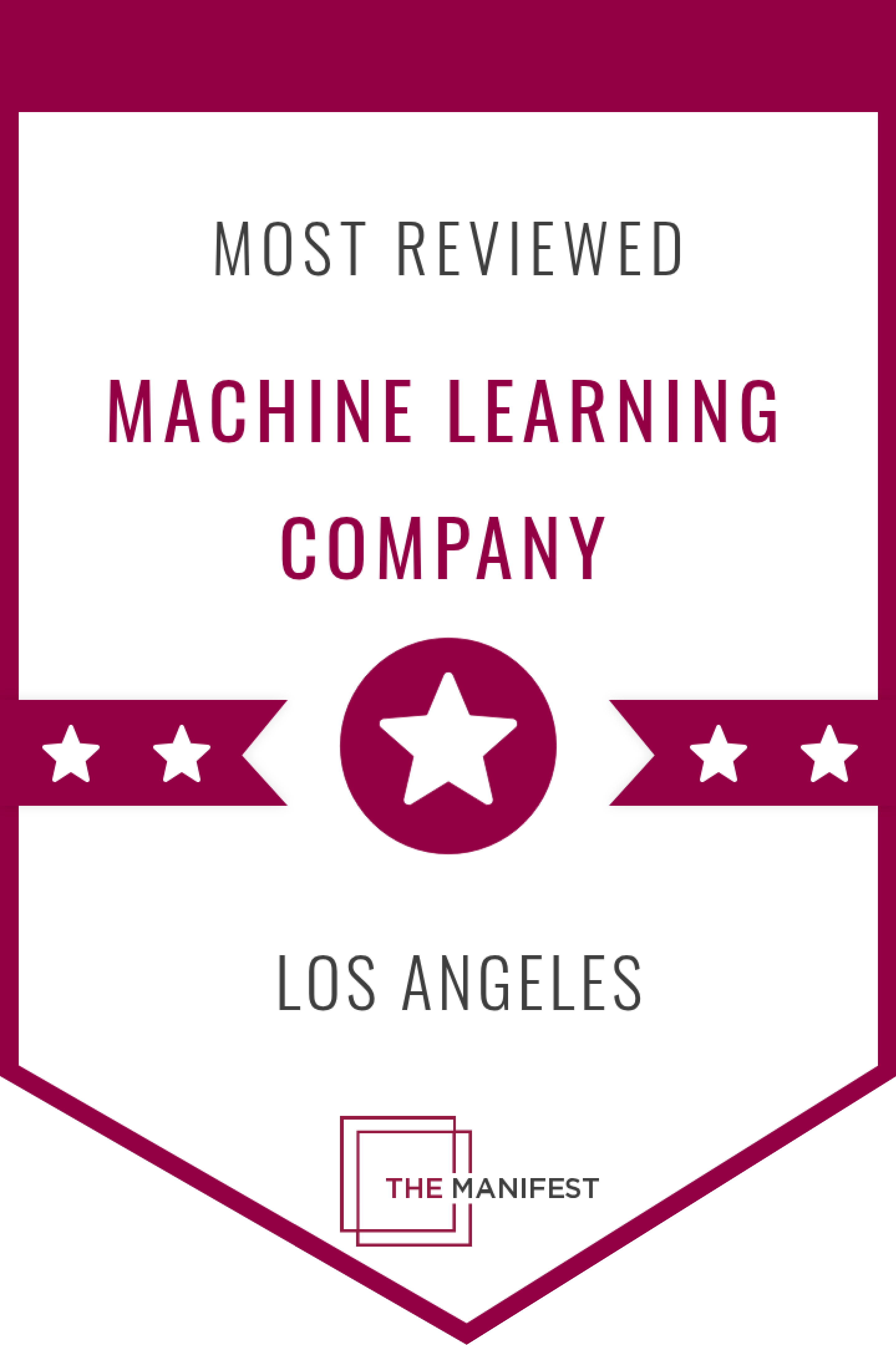
Most Reviewed Machine Learning Company in Los Angeles
Award by The Manifest for the Most Reviewed Machine Learning Company in Los Angeles

Most Reviewed Artificial Intelligence Company in Los Angeles
Award by The Manifest for the Most Reviewed Artificial Intelligence Company in Los Angeles

Most Reviewed Artificial Intelligence Company in India
Award by The Manifest for the Most Reviewed Artificial Intelligence Company in India

Top App Development Company
Award by Clutch for Top App Developers

Top Health & Wellness App Developers
Award by Clutch for the Top Health & Wellness App Developers

Top Cross-Platform App Developers
Award by Clutch for the Top Cross-Platform App Developers

Top Consumer App Developers
Award by Clutch for the Top Consumer App Developers

The Webby Award Honoree 2024
Honoree for App Features: Experimental & Innovation
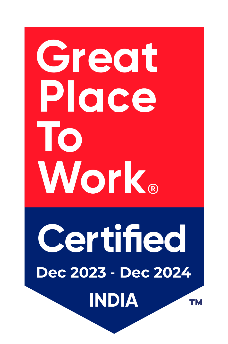
Great Place To Work Certified
Awarded as a Great Place to Work for our thriving culture

Top 100 Global by Red Herring
Recognised by Red Herring among the Top 100 Companies

Top Enterprise App Developers
Award by Clutch for Top Enterprise App Developers
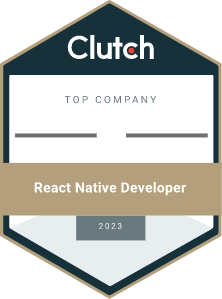
Top React Native Development Company
Award by Clutch for Top React Native Developers

Top Flutter Development Company
Award by Clutch for Top Flutter Developers
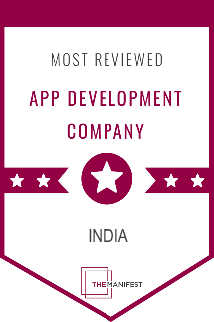
Most Reviewed App Development Company
Award by Manifest for the Most Number of Client Reviews

Corporate Sponsor of the Year 2019
Awarded by Greater Conejo Valley Chamber of Commerce
Ready to Build the Intelligent
App of the Future?
Schedule a Complimentary Consultation to Discuss
AI Integration and Project Roadmap with Our Tech Leaders.
Frequently Asked Questions
- General
- Privacy
- Responsible AI
- Upcoming Features & Offerings
General
What is microservices development and how does it work?
What are the key business benefits of microservices architecture?
Key benefits include scalability, faster time-to-market, fault isolation, technology flexibility, and resilience—helping businesses innovate quickly and reduce downtime risks.
Which industries typically adopt microservices and why?
Microservices are adopted in finance, healthcare, e-commerce, telecom, and manufacturing because they demand scalability, regulatory compliance, and rapid feature deployment.
How does microservices architecture enable scalable applications?
Each microservice can scale independently based on demand. This avoids overprovisioning and ensures cost-efficient use of resources while meeting performance targets.
Which technologies and tools are commonly used for microservices?
Microservices typically use Docker (containers), Kubernetes (orchestration), Kafka/RabbitMQ (messaging), and API gateways like Kong or NGINX. We also leverage CI/CD pipelines, observability tools, and service meshes (Istio/Linkerd).
How does fault isolation work in a microservices architecture?
Since services run independently, failures are isolated to a single service. Circuit breakers and retries prevent cascading failures, improving overall system reliability.
What challenges should businesses anticipate with microservices?
Challenges include distributed system management, inter-service communication, data consistency, monitoring, and deployment complexity. With DevOps, service meshes, and observability tools, these risks can be mitigated.
Why partner with TechAhead for microservices development?
With 16+ years in digital transformation, TechAhead builds secure, scalable microservices with a focus on performance. Our certified engineers deliver end-to-end—from architecture to CI/CD automation and 24×7 support.
How do you ensure security in microservices architectures?
We enforce security with API gateways, encryption, authentication/authorization (OAuth2, JWT), network policies, and compliance audits—ensuring services communicate securely.
Can microservices integrate with legacy monolithic systems?
Yes. We design microservices to coexist with legacy systems through APIs, adapters, and middleware, enabling gradual modernization without disrupting existing workflows.
What’s the typical timeline and cost for a microservices project?
Timelines range from 8–12 weeks for pilots to 6+ months for enterprise platforms. Cost depends on complexity, integrations, and scale—we provide tailored estimates post-assessment.
How do you monitor and maintain microservices in production?
We deploy observability stacks (Prometheus, Grafana, ELK), distributed tracing (Jaeger, Zipkin), and automated alerts. Regular patching, scaling, and SLA-driven support ensure reliability.
Do you provide containerization and DevOps support with microservices?
Yes. We provide containerization (Docker), orchestration (Kubernetes), automated CI/CD, infrastructure as code, and DevOps pipelines tailored for microservices deployments.
Where is your microservices development team located?
We have microservices architects and engineers in California, Noida, and Dubai. The California team handles client strategy and architectural design. Noida does the implementation work with Docker, Kubernetes, and API development. Dubai covers Middle East clients. Everyone's certified in container orchestration, works with the same frameworks, and there's always someone available across timezones.
How much does it cost to build an app for a business?
Business application development pricing depends on design complexity, system architecture, integration requirements, security measures, and growth planning.
Typical investment ranges include:
- MVP: US $50,000 – $100,000 (core features to validate business value)
- Medium-scale applications: US $100,000 – $250,000 (advanced functionality, integrations, and scalability)
- Large / Enterprise-grade solutions: US $250,000 – $500,000 (complex architectures, high security, and enterprise integrations)
We collaborate closely with your team to fully understand your business goals and technical needs, enabling transparent pricing and a well-defined delivery plan. Our development approach prioritizes scalability, security, and performance to ensure your application delivers lasting value as your business grows. Feel free to schedule a call to discuss your requirements and define a customized development plan.
How do you handle compliance in microservices?
We build compliance directly into each service with encryption, secure API gateways, identity management, and audit logging. Whether you need SOC 2, HIPAA, GDPR, or ISO 27001, we design service boundaries that maintain data sovereignty and implement continuous security monitoring so every microservice meets your regulatory requirements without slowing down development.
What's your microservices development process?
First, we define service boundaries and figure out how everything should communicate. Then we design the domain model with clear data ownership. During implementation, we build independent services with APIs and event-driven messaging. After that, we set up databases for each service, add caching, test everything thoroughly, and deploy with container orchestration while providing ongoing monitoring and optimization.
Privacy
How does microservices architecture handle data privacy?
Microservices architecture allows for data to be segmented and isolated within individual services, enhancing privacy and reducing the risk of widespread data breaches.
How are user data and privacy protected in microservices?
User data is protected by implementing strong encryption protocols, secure communication channels, and strict access controls, ensuring that only authorized services and users can access sensitive information.
What privacy measures does TechAhead take for inter-service communication?
Inter-service communication is secured using encryption, mutual TLS, and authentication mechanisms to ensure that data exchanged between services remains confidential and protected from unauthorized access.
How does microservices architecture comply with data privacy regulations?
Microservices architecture supports compliance with data privacy regulations like GDPR and CCPA by enabling data minimization, access control, and audit logging, ensuring that data handling practices meet regulatory requirements.
How is sensitive data stored securely in a microservices architecture?
Sensitive data is stored securely using encryption both at rest and in transit, along with robust access control mechanisms to restrict unauthorized access to the data.
Can microservices architecture support data anonymization?
Yes, microservices architecture can support data anonymization by incorporating services that handle anonymization processes, ensuring that personally identifiable information (PII) is masked or removed as required.
How is user consent managed in a microservices architecture?
User consent is managed by centralizing consent management services that handle user permissions and preferences, ensuring compliance with consent requirements and easy updates to consent records.
What role does monitoring play in maintaining data privacy in microservices?
Monitoring plays a crucial role by providing visibility into service interactions, detecting potential privacy breaches, and ensuring that data handling practices adhere to privacy policies and regulations.
Responsible AI
What is Responsible AI in the context of microservices development?
Responsible AI ensures that AI systems within microservices are designed and implemented ethically, prioritizing fairness, transparency, accountability, and minimizing bias in decision-making processes.
How can microservices architecture support Responsible AI practices?
Microservices architecture supports Responsible AI by enabling modular implementation of AI components, allowing for better oversight, testing, and refinement of AI algorithms to ensure ethical standards are met.
What measures does TechAhead take to ensure AI fairness in microservices?
Measures include bias detection and mitigation, regular audits of AI models, and inclusive data practices, ensuring that AI components within microservices deliver fair and unbiased outcomes.
How is transparency maintained in AI-driven microservices?
Transparency is maintained by documenting AI model decisions, making algorithms and data sources understandable to stakeholders, and providing clear explanations for AI-driven outcomes within microservices.
How does TechAhead ensure accountability for AI systems in microservices?
Accountability is ensured by defining clear roles and responsibilities, implementing robust monitoring and logging mechanisms, and establishing protocols for addressing and rectifying AI-related issues.
What steps are taken to mitigate bias in AI models within microservices?
Steps include diverse training data, continuous bias assessment, and iterative model updates, ensuring AI models within microservices provide equitable results across different user groups.
How does microservices architecture facilitate ethical AI deployment?
Microservices architecture allows for isolated deployment and rigorous testing of AI components, ensuring that ethical considerations are thoroughly evaluated before integration into the broader system.
What role does user feedback play in Responsible AI for microservices?
User feedback is crucial for identifying biases, improving AI model accuracy, and ensuring AI systems within microservices align with user expectations and ethical standards.
Upcoming Features & Offerings
What new features can we expect in your microservices development services?
We are planning to introduce enhanced AI-driven analytics for better service performance insights, improved security protocols, and advanced scalability options to meet growing business demands.
Are there any upcoming integrations with popular third-party tools?
Yes, we are working on seamless integrations with leading third-party tools such as AWS Lambda, Google Cloud Functions, and Azure Functions to enhance our microservices offerings.
Will there be improvements in the security features of your microservices solutions?
Absolutely. We are enhancing our security features with advanced encryption methods, zero-trust architecture, and more robust identity and access management controls.
What new customization options will be available for microservices architectures?
We will offer more customizable templates and configurations, allowing clients to tailor microservices architectures to their specific business needs and operational workflows.
Are there plans to support more programming languages in your microservices framework?
Yes, we are expanding support to include additional programming languages such as Rust, Go, and Scala to provide more flexibility and options for development teams.
Will there be enhancements to monitoring and logging capabilities?
We are enhancing our monitoring and logging capabilities with more granular data collection, real-time alerts, and integration with popular monitoring tools like Prometheus and Grafana.
What improvements can we expect in the deployment process?
We are streamlining the deployment process with automated CI/CD pipelines, improved container orchestration, and enhanced rollback mechanisms to ensure smoother and faster deployments.
Are there any upcoming features to improve inter-service communication?
Yes, we are introducing advanced message queue systems, enhanced API gateways, and support for service mesh technologies like Istio to optimize inter-service communication.
RELATED BLOGS
Explore Our Insightful Blogs on
Microservices Development Services

Microservices vs. APIs vs. Containers: What Every Business Owner Should Know in 2026
August 19, 2025 | 772 Views
Technical Content Writer

The Hidden ROI of Microservices: Reduce Downtime, Boost Agility, Control Costs
July 23, 2025 | 1221 Views
Technical Content Writer

Serverless Vs. Microservices: Which Architecture is Best for Your Business?
November 8, 2024 | 2481 Views
Chief Commercial & Customer Success Officer







